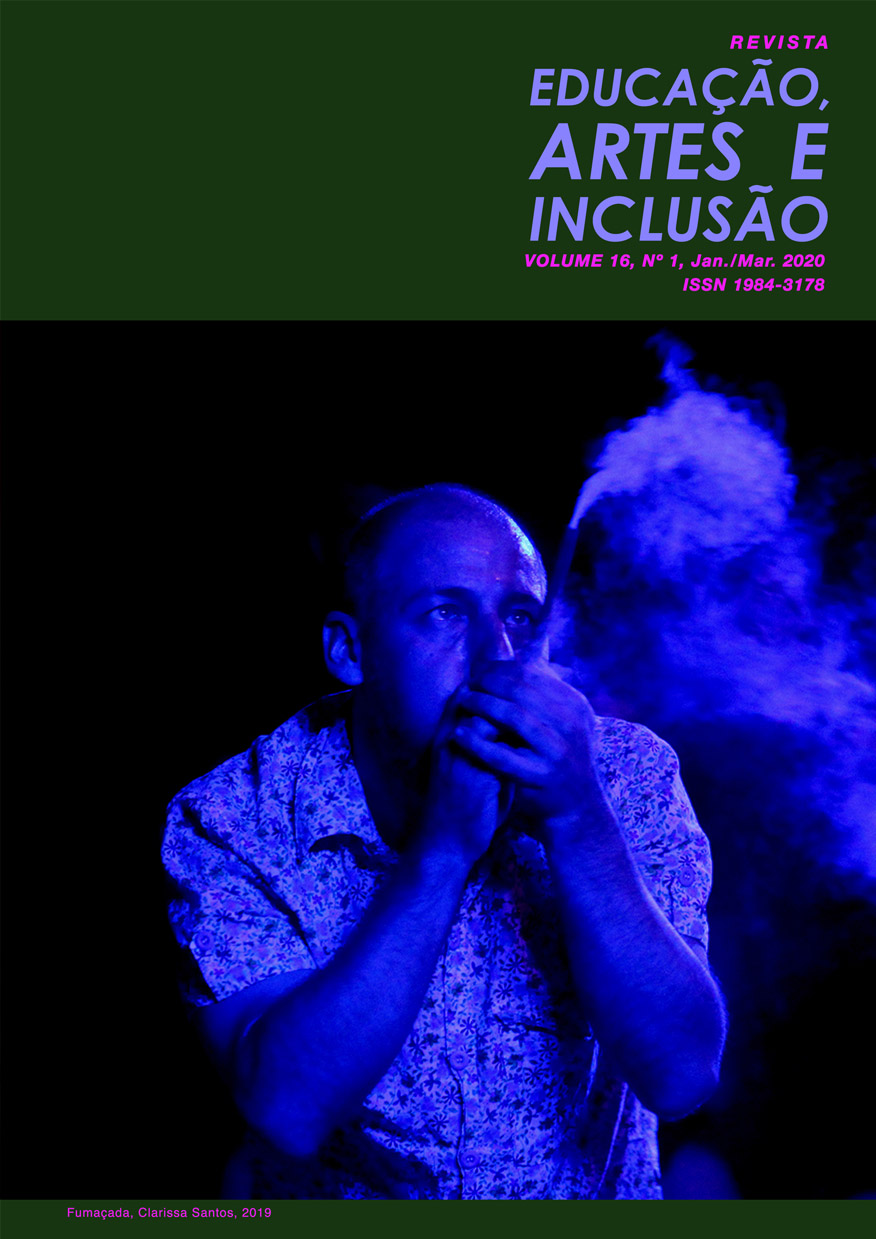Entrevista com Karol Cordeiro: uma história de amor e luta pela inclusão através da arte
DOI:
https://doi.org/10.5965/1984317816012020254Palabras clave:
Educação, Artes, Inclusão, Síndrome de Aicardi-GoutièresResumen
Karolina Cordeiro é geógrafa de formação, doula por missão e escritora por paixão. Mãe da Ana Júlia, do Pedro e da Giovana. Fundadora do Projeto Angel Hair (cultura, arte, educação e inclusão), que leva apresentações itinerantes em escolas públicas de dança inclusiva e palestras em várias cidades do Brasil. O Projeto nasceu depois que seu filho Pedro desenvolveu uma síndrome rara chamada Aicardi Goutieres. Ativista pelos direitos humanos. Facilitadora em desenvolvimento humano no Movimente Ateliê. Palestrante e colunista da revista Cult, articulista da Revista Reação (revista nacional de reabilitação) e colunista da revista Triângulo Esporte. Membro da Comissão em Defesa da Pessoa com Deficiência da OAB Minas, Diretora de Operações da AGS Síndromes da América do Sul. Corredora da Angel Hair Team. Cofundadora do Projeto Muda do Afeto (cartilha e livros sobre a pessoa com deficiência). Uma mulher e mãe que transforma a experiência de ter um filho com deficiência em aprendizado e oportunidade de criar relações significativas e importantes para um mundo melhor.Descargas
Descargas
Publicado
Cómo citar
Número
Sección
Licencia
Declaración de Derecho de Autor
Los autores que publican en esta revista concuerdan con los siguientes términos:
(A) Autores mantiene los derechos de autor y concede a la revista el derecho de primera publicación, con el trabajo simultáneamente licenciado bajo la Licencia Creative Commons Attribution que permite el compartir el trabajo con reconocimiento de la autoría y publicación inicial en esta revista.
(B) Autores tienen autorización para asumir contratos adicionales por separado, para distribución no exclusiva de la versión del trabajo publicada en esta revista (por ejemplo, publicar en repositorio institucional o como capítulo de libro), con reconocimiento de autoría y publicación inicial en esta revista.
(C) Esta revista proporciona acceso público a todo su contenido, ya que esto permite una mayor visibilidad y alcance de los artículos y reseñas publicadas. Para obtener más información acerca de este enfoque, visite el Public Knowledge Project.
Esta revista tiene una licencia Creative Commons Attribution-NonCommercial 4.0 International. Esta licencia permite que otros remezclen, modifiquen y desarrollen su trabajo con fines no comerciales, y aunque los trabajos nuevos deben acreditarlo y no pueden usarse comercialmente, los usuarios no están obligados a licenciar estos trabajos derivados bajo los mismos términos.





